Nigerian Musical Instruments and Their History
Nigerian Musical Instruments and Their History
Nigeria is home to a rich variety of musical instruments, each with a deep connection to the country’s diverse cultural heritage.
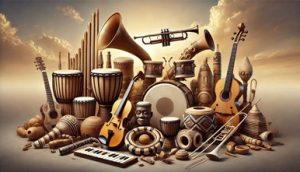
These instruments shape the evolution of Nigerian music, playing essential roles in ceremonies, celebrations, and storytelling across its many ethnic groups.
Nigerian Musical Instruments: Diversity Across Regions
Nigeria’s rich ethnic and cultural diversity is reflected in the country’s extraordinarily varied music. Each region boasts its own unique musical styles and traditions.
For example, the Yoruba people are renowned for their intricate drumming patterns and rhythmic chants.
Meanwhile, the Igbo community is known for lively highlife music, featuring upbeat tempos and brass instruments.
On the other hand, the Hausa people provide traditional, melodic melodies that are frequently accompanied by the kakaki and kora.
Overall, the country’s rich musical heritage is reflected in its variety of instruments, which are not only used to create music but also serve as symbols of Nigeria’s cultural identity.
A Brief Overview of Local Nigerian Musical Instruments
Nigeria’s ethnic groups utilize a wide variety of musical instruments, and each has a unique place in the communities that use it.
The Yoruba, Igbo, and Hausa are just a few examples of Nigeria’s numerous ethnic groups, each with its own distinct musical traditions.
Drums
Drums are central to Nigerian music. One of the most famous is the “Gangan” (talking drum) of the Yoruba, which can imitate human speech, allowing drummers to communicate messages through their playing.
Additionally, the Bata drum, another Yoruba instrument, is often used in religious ceremonies and celebrations.
In the north, the Hausa people also play the “Kalangu,” a type of talking drum, during festive occasions.
String Instruments
Nigerian music also heavily incorporates string instruments. For instance, the 21-string lute-bridge harp, known as the “Kora,” is a favorite among the Fulani and Hausa.
Moreover, the “Ubo aka,” or thumb piano, is a musical instrument used by the Igbo people.
These instruments are employed not only in spiritual ceremonies but also in entertainment and storytelling.
Wind Instruments
Nigerian music has a unique character, thanks to wind instruments. Igbo flutes, known as “Oja,” are utilized in a variety of dances and celebrations.
Similarly, during customary celebrations, the Hausa people play the double-reed wind instrument known as the “Algaita.”
In fact, these instruments frequently produce a rich and harmonic sound when combined with other musical genres.
Percussion Instruments
Percussion instruments are indispensable in Nigerian music. The “Shekere,” a beaded gourd, is found in many ethnic groups and produces a rhythmic sound when shaken.
Additionally, the Yoruba people use the “Agogo,” a bell, to maintain time in music and dance.
Eventually, the rhythmic foundation of many Nigerian compositions is provided by these instruments.
Traditional Nigerian Music and Instruments: An Enduring Legacy
Traditional Nigerian music has its roots in the functional use of music for trade, social activities, and storytelling. It serves as a means of morale-boosting and cultural expression.
Each ethnic group has songs for specific occasions, such as funerals, weddings, and farming, with music always tailored to the context of its occasion.
As religions like Christianity and Islam spread across Nigeria, traditional music adapts to include elements of these new beliefs, preventing it from fading away.
Over time, traditional Nigerian music genres evolve and fuse with Western music styles, leading to the diverse sounds we hear today.
The Influence of Environment on Musical Instruments
Environmental factors play a significant role in shaping the musical instruments of different regions.
For example, animal skins are used to make drum membranes and string instruments like the Goge and Molo in the northern savannah, where raising cattle is widespread.
In contrast, southern Nigeria’s forests provide materials like wood and gourds for making instruments such as the sekere (beaded gourd), xylophones, and thumb pianos.
Furthermore, certain trades, such as blacksmithing, influence the creation of metallic instruments like gongs and bells.
In northern Nigeria, the ceremonial long trumpet, “Kaakaki,” typically made from metal, originates from the Arab world.
Drums: The Heartbeat of Nigerian Music
Across Nigeria, drums are a significant aspect of musical culture. Each ethnic group has its own unique type of drum, with a variety of shapes, sizes, and sounds.
Some of the common traditional drums in Nigeria include the Bata, Djembe, Gongo, Ekomo, Sakara, and Sato.
These drums serve as the heartbeat of Nigerian music, driving the rhythm and pace of songs.
10 Popular Traditional Nigerian Music Genres
- Juju: Popularized in the 1920s and 1930s by Tunde King, Juju music blends Yoruba music with Brazilian instruments, Islamic percussion, and brass instruments. Over time, it incorporates electric guitars, keyboards, and drums.
- Apala: Originating from the Islamic wake-up chants during Ramadan, Apala is characterized by strong percussion instruments such as the agidigbo (thumb piano) and shekere. Haruna Ishola is a notable exponent of this genre.
- Fuji: A blend of Apala, Juju, Sakara, Highlife, and Aro, Fuji music becomes popular in the 1960s and 1970s, with notable artists like Sikiru Ayinde Barrister and Kollington Ayinla.
- Waka: A traditional Yoruba genre often performed by women, with famous exponents including Salawa Abeni and Batile Alake.
- Highlife: Originating in colonial Ghana, Highlife becomes popular in Nigeria among the Igbo and South-South tribes. It features guitars and wind instruments and combines jazz with African rhythms.
- Afrobeat: An energetic fusion of jazz, funk, highlife, and Fuji, Afrobeat is popularized by Fela Kuti. It combines Yoruba rhythms and call-and-response singing to create a genre that becomes a global phenomenon.

The Importance of Musical Instruments in Nigerian Culture
In Nigeria, musical instruments are much more than tools for making music—they hold deep social and cultural significance.
They are used in rituals, ceremonies, and festivals, and serve as a means of communication with ancestors and deities.
Social and Cultural Significance
Musical instruments play a crucial role in Nigerian social life, being integral to weddings, funerals, and festivals.
For example, drums are believed to bridge the gap between the physical and spiritual worlds.
Storytelling and Oral Tradition
Musicians use instruments to convey historical events and folklore, ensuring that Nigeria’s cultural heritage is passed down through generations.
In fact, instruments add emotion and depth to the stories, enriching the tradition of oral storytelling.
Entertainment and Celebration
Instruments like the Shekere and Bata drum are essential to social gatherings and festivities because they produce a lively and joyous mood. These instruments foster unity and joy among people.
Heritage and Identity
For many ethnic groups in Nigeria, musical instruments serve as a representation of their identity.
The history, values, and beliefs of the communities that perform them are reflected in these instruments.
Since they continue to influence both traditional and contemporary Nigerian music, their preservation is crucial to preserving Nigeria’s rich cultural legacy.
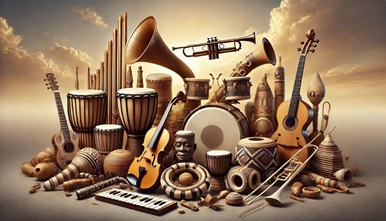
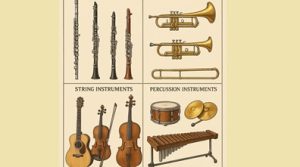
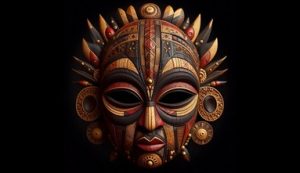
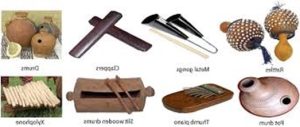
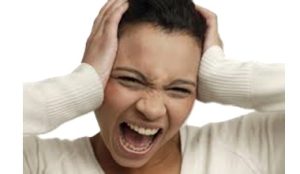
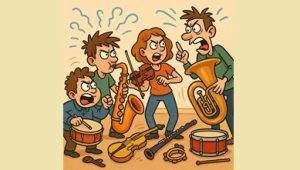
Your point of view caught my eye and was very interesting. Thanks. I have a question for you. https://www.binance.info/en-IN/register-person?ref=UM6SMJM3
I do not even know how I ended uup here, but I thought this post was great.
I do not know who you are but certainly you are going to a famous bloogger if you aren’t
already 😉 Cheers! https://yv6bg.mssg.me/
Thank you for your sharing. I am worried that I lack creative ideas. It is your article that makes me full of hope. Thank you. But, I have a question, can you help me?